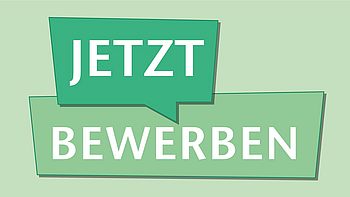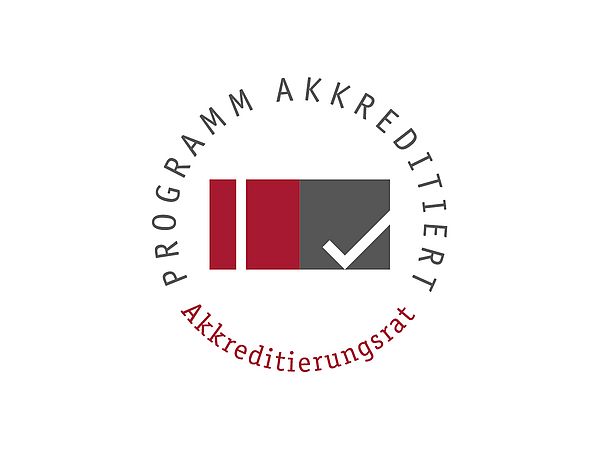Sustainable Energy Technologies and Systems (Bachelor)
Humanity is facing a major challenge to its energy supply: In order to protect the climate, all of the fossil fuels in current usage need to be replaced by renewable energy sources. This affects not only the power industry, but also the heating, transportation, and industrial sectors. To enable this transition to occur without adverse effects, the power systems technologies degree program deals with the entire system – before, during, and after its transformation. The program focuses not only on new technologies, but also on efficiency enhancement and sector coupling. Building on a foundation of engineering knowledge, students examine specific aspects and problems of the shift to renewable energies through more advanced courses.
Jobs and careers
The transformation of the energy system touches every area of life, which means that graduates of this program can find a broad range of job opportunities, from small start-ups to global companies. Traditional power supply companies such as plant operators, energy suppliers, grid operators, and municipal utilities seek engineers with broad-based knowledge and an understanding of the system as a whole, as do industrial firms that need to restructure their energy supply. Graduates of this program have additional opportunities with producers of new technologies for energy generation, distribution, storage, conversion, and use, especially in the area of system design and integration. Design and engineering firms also have a future need for broadly trained engineers, as do the associations and public bodies that are managing and regulating energy reforms in every area.
Possible fields:
- Operators of energy generation and storage facilities
- Manufacturers of, for example, wind turbines, photovoltaic systems, converter systems, battery systems, charging infrastructure, and electric vehicles
- Design and engineering firms
- Energy suppliers
- Grid operators
- Associations and public bodies
- Energy consulting agencies
- Universities and research institutions
Why Clausthal?
The Sustainable Energy Systems research focus area at TU Clausthal, which studies secure energy supply on the basis of renewable sources, is dedicated to the transformation of the energy system. The power systems technologies degree program provides a foundation for such research, teaching students about both the current thermal power generation that will continue to play a role in the future and the new energy system. This foundation is also reflected in research projects in which students do interdisciplinary work on new business models and the transition to the new energy system. Ties to research and industry ensure students gain a good insight into real-world applications. On top of this, a mentoring program and close contact with staff create a highly supportive environment for students during the program.
Program structure
The program begins by imparting foundational knowledge of mathematics, natural sciences, and engineering in the first two semesters. This provides the basis for the study of electrical, mechanical, and thermodynamic power technologies in the following three semesters. The students gain familiarity with conventional power plants, electrical machinery, the operation of the electrical energy supply, and the relevant legal and economic principles. The curriculum is enhanced through electives that enable students to choose their own focus areas through more advanced lectures and laboratory classes. The program concludes with an industrial placement and a bachelor’s thesis that the students complete as a piece of independent academic work.
Focus
- Mathematics for engineering
- Applied mechanics
- Foundations of electrical engineering
- Technical thermodynamics and heat transfer
- Instrumentation
- Electrical power engineering and power generation
- Energy conversion machinery
- Introduction to business administration and law
- Industrial placement
- Bachelor’s thesis
Industrial placement
In the industrial placement, students participate in the working environment of engineers in leadership, development, and other roles. This placement aims to provide professional orientation and give students practical experience.

Hannes Hanse, M.Sc.
Phone: +49 5323 72-2595
Fax: +49 5323 72-2104
E-Mail: ba.nets@tu-clausthal.de
Institute of Electrical Power Engineering and Energy Systems
Leibnizstraße 28, Room 801
38678 Clausthal-Zellerfeld

Prof. Dr. Ines Hauer
Phone: +49 5323 72-2176
Fax: +49 5323 72-2104
E-Mail: ines.hauer@tu-clausthal.de
Institute of Electrical Power Engineering and Energy Systems
Leibnizstraße 28
38678 Clausthal-Zellerfeld
Studying in Clausthal
Start application now.
Program outline
Type of program: Bachelor
Duration: 6 Semester
Language of teaching: German
Degree: Bachelor of Science (B.Sc.)
Prerequisites: University admission requirements
Start date: Winter semester.
Accreditation: Urkunde ASIIN
Starting your studies
Welcome Weeks (before the start of lectures)
The Clausthal University of Technology supports the start of studies with various event formats.
Pre-course in mathematics (before the start of lectures)
The Institute of Mathematics offers a pre-course in mathematics for all first-year students.
These courses might also interest you
Digital Technologies Electrical Engineering Energy and Materials Physics Energy and Raw Materials Mechanical Engineering
Subsequent Master Programs
Energy Systems Engineering (consecutive Master) Energy and Materials Physics
Documents
Study program flyer
Model curricula valid for AFB 2022
valid for AFB 2016
Examination regulations
- General examination regulations
- Implementation regulations (2022), valid from winter semester 2022/23
- Implementation regulations (2016), valid until the end of SoSe 2026
Internship regulations
Catalogs of compulsory electives valid for AFB 2022
- Compulsory elective catalog WS 24/25 and SoSe 25_update 18.06.2024
- Compulsory elective catalog WS 23/24 and SS 24_update 13.06.2023
valid for AFB 2016
- Compulsory elective catalog WS 24/25 and SoSe 25_update 18.06.2024
- Compulsory elective catalog WS 23/24 and SS 24_update 13.06.2023
Module handbook valid for AFB 2022
valid for AFB 2016
![[Translate to English:] [Translate to English:]](/fileadmin/_processed_/9/1/csm_Beachvolleyball_1_1a8913aa18.jpg)

